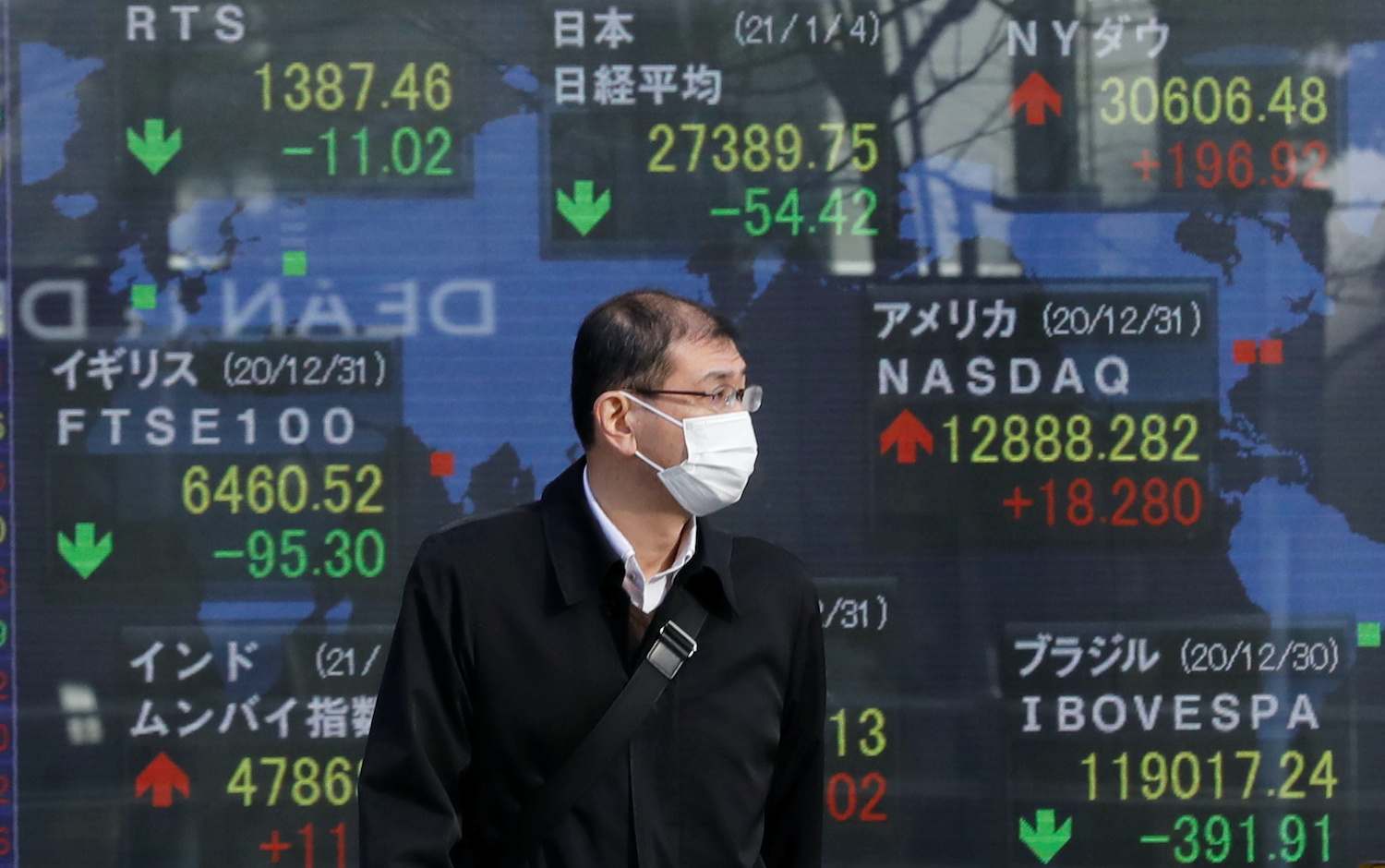(ATF) Hong Kong: Investors piled into risk markets on expectations of a speedy passage of the $1.9-trillion stimulus package, while continued rollouts of vaccines and slowing infections gave hopes of a global economic rebound.
US Treasury Secretary Janet Yellen said in a CNN interview the world’s biggest economy could see full employment next year if Congress passes the proposed $1.9 trillion package, while warning failure to pass the bill would keep the unemployment rate elevated for the next few years.
Global infection cases continued to slow as new infections registered 395,000 cases, which was below the 7-day rolling average.
Japan’s Nikkei 225 index vaulted 2.12% outperforming the region, after a report the government may lift its state of emergency early for some areas.
Australia’s S&P ASX 200 added 0.59%, and China’s CSI300 jumped 1.48%.
Hong Kong’s Hang Seng index gains were muted with the benchmark edging up 0.11% as investors worried about southbound investment flows slowing due to mainland China’s upcoming New Year holidays.
Regionally, the MSCI Asia Pacific index advanced 1.31%.
“The US government’s ‘Rescue’ package is very large at 9.0% of GDP and follows December’s $900 billion of emergency aid passed by Congress at the end of the Trump administration,” said Mansoor Mohi-uddin, Bank of Singapore’s chief economist, adding that Treasury Secretary Yellen – a former Fed chair – down-played the risks of the $1.9 trillion fiscal proposal causing inflation to take off.
“The likelihood of further fiscal stimulus is set to keep risk assets supported despite virus waves still holding back growth in the near term,” he said.
Shenzhen exchange to merge stock boards
Investors remained upbeat about China’s financial market reforms as its securities regulator said it had greenlighted the merger of the Shenzhen Stock Exchange’s main board with the SME board, and after HKEX said it is investing in Guangzhou Futures Exchange.
The risk-on environment pressured US Treasuries with the 10-year yield rising 2 basis points to 1.19% and gold easing 0.1% to $1,813 per ounce.
But analysts remain wary of the region’s risk markets.
“Asia has been a story of divergence and denial since the start of the year with markets ignoring a dangerously declining risk appetite in favour of repeated tests of historical new highs,” Olivier d’Assier, head of Applied Research, APAC at Qontigo, said.
“Despite sentiment’s turnaround this past week, the supply and demand for risk remains firmly on the supply side and any negative news is likely to fall on bearish ears rather than bullish ones at this point. If the recent improvement in risk aversion levels can be credited to the earning season, a deterioration is likely to come from the geopolitical spectrum once the reporting season is over.”
Also on Asia Times Financial
Vietnam’s uneven green energy push just became murkier
China monopoly guidelines keep pressure on Alibaba, Tencent
SoftBank seeks $550 million through two new SPAC investments
Tesla’s Supercharger factory in China goes online
Who is really winning the great electric vehicle disconnect war?
Differentiating China’s local risks is vital role for rating agencies
Asia Stocks
· Japan’s Nikkei 225 index vaulted 2.12%
· Australia’s S&P ASX 200 added 0.59%
· Hong Kong’s Hang Seng index edged up 0.11%
· China’s CSI300 jumped 1.48%
· The MSCI Asia Pacific index advanced 1.31%.
Stock of the day
South Korean carmakers Hyundai, Kia saw their shares wipe out $8.5 billion in market capitalisation after saying they were not in talks with Apple on autonomous electric cars, in a reversal of its statement a month ago. Hyundai’s shares fell 6.2% and Kia’s stock slid 15%.
























